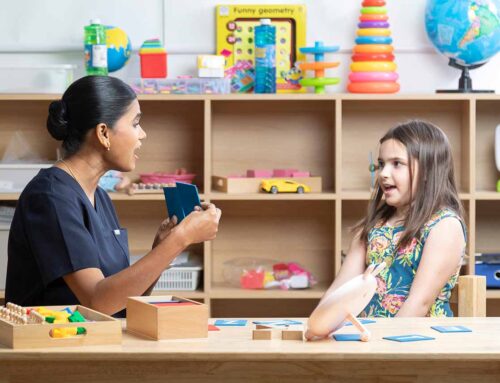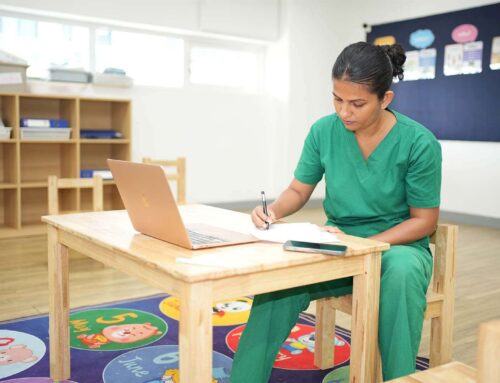Play is one of the most powerful ways children learn—and playdough is no exception. From squishing and rolling to shaping and building, this simple activity offers endless opportunities for young minds to grow. But beyond fine motor skills, playdough also plays a surprising role in speech and language development.
At OrbRom Center in Phnom Penh, we frequently incorporate creative play activities like playdough into speech therapy sessions. Why? Because when children’s hands are engaged, their brains—and voices—follow.
Language Learning Through Hands-On Play
Playdough is a multisensory tool. It activates touch, movement, and visual input, all while creating a fun and relaxed environment for communication. During play, children naturally talk about what they’re doing, ask for tools, describe their creations, and respond to prompts. This kind of functional language builds vocabulary and conversational skills.
Here’s how playdough supports speech development:
-
Descriptive language: soft, sticky, long, flat, purple, round
-
Action words: roll, cut, squeeze, poke, press, twist
-
Sentence building: “I made a big snake,” or “Let’s make a pizza!”
-
Turn-taking and sharing: Encouraging social communication
Using Playdough in Therapy Sessions
At OrbRom Center, our speech therapists use playdough to:
-
Support expressive and receptive language goals
-
Encourage storytelling and sequencing
-
Reinforce speech sounds and articulation in a low-pressure setting
Playdough activities are highly adaptable. For children working on articulation, the therapist might embed target sounds into a themed activity like “baking biscuits” or “building a zoo.” For those developing vocabulary, themed prompts help expand their word bank while they engage with the materials.
How Phnom Penh Parents Can Try This at Home
One of the best things about playdough is how easy it is to use at home. With just a few colors and some imagination, parents can turn playtime into a language-rich environment.
Try this:
-
Theme play: Create a farm, restaurant, or zoo. Talk about the animals, foods, or characters you make.
-
Following instructions: Give your child simple directions like “Roll a ball” or “Make a long snake.”
-
Ask questions: “What are you making?” “What color is that?” “What comes next?”
These types of interactions are natural and playful but can have a major impact on language growth—especially when done consistently.
Why Play-Based Therapy Works
Children learn best when they’re having fun. At OrbRom Center, we prioritize child-led, engaging, and purposeful therapy methods. Playdough isn’t just a toy—it’s a therapeutic tool that supports language, cognitive, and social-emotional development.
For children in Phnom Penh with speech delays or communication challenges, play-based therapy can be the bridge between silence and expression.
👉 Discover more about our Speech Therapy Services
We are the only Preschool specialized on children with special needs in PhnomPenh.
- Internationally qualified teachers
- Cambodia’s largest sensory room
- Outdoor swimming pool
- Covered outdoor playground📞 Phone: 077.455.993
Telegram Link: https://t.me/OrbRom






